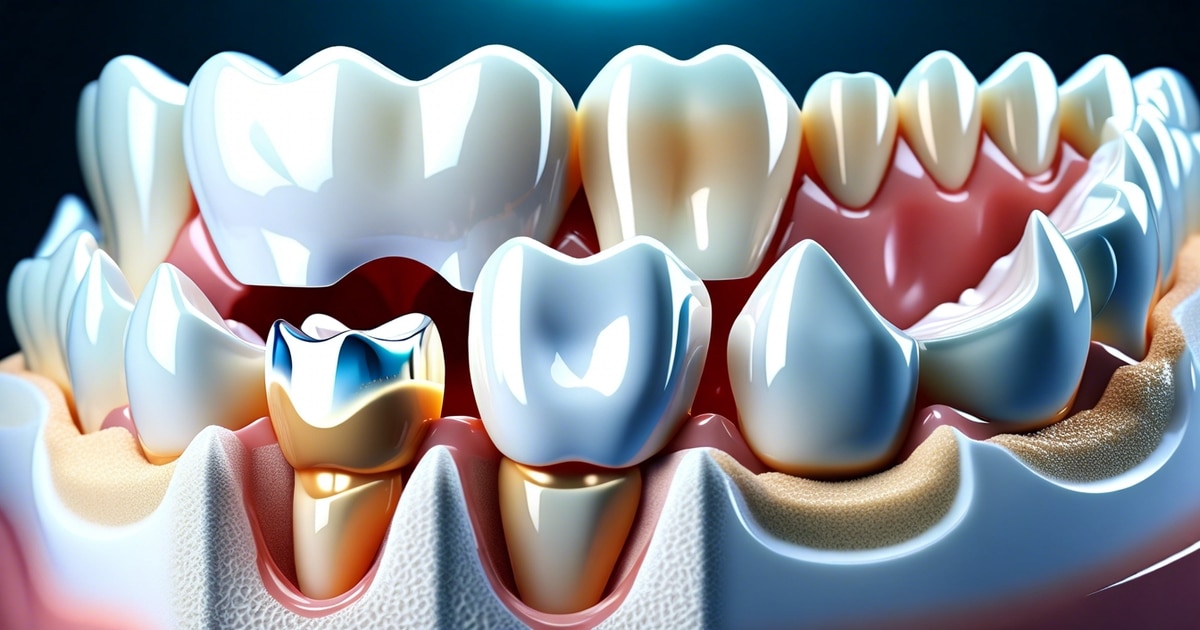Key Takeaways
- Be Informed: Understand the benefits and potential side effects of apple cider vinegar (ACV) before incorporating it into your routine.
- Monitor Your Intake: Pay attention to common side effects like digestive issues and risks such as tooth enamel erosion.
- Prioritize Health: Be cautious about low potassium levels and bone health concerns that may arise from excessive ACV consumption.
- Consult healthcare providers: Discuss any medication interactions, doses, and dietary supplements to avoid adverse effects.
- Practice Safely: Follow safe consumption practices and take necessary precautions to mitigate risks associated with apple cider vinegar, acetic acid, and possible side effects.
- Balance is Key: Enjoy the benefits of ACV while being mindful of potential apple cider vinegar side effects.
Understanding Apple Cider Vinegar
Potential Risks
Apple cider vinegar may cause side effects if consumed excessively. Acetic acid, present in apple cider vinegar, can erode tooth enamel over time. The high acidity of acv might lead to digestive issues like stomach upset or indigestion. Consuming too much apple cider vinegar can lower potassium levels in the body, potentially affecting bone health and muscle function. Some individuals may experience throat irritation when drinking undiluted ACV, leading to discomfort and inflammation.Precautions to Take
It is crucial to dilute ACV before consumption to reduce its acidity and minimize the risk of side effects. Using a straw when drinking diluted ACV can help prevent tooth erosion by minimizing contact with tooth enamel. To avoid potential digestive issues, it is advisable not to consume large quantities of undiluted ACV at once. Moderation is key when incorporating acids like acetic acid into your diet for overall well-being.Benefits vs. Side Effects of Apple Cider Vinegar
Potential Health Benefits
Apple cider vinegar (ACV) is praised for its health benefits, like aiding in weight loss and improving heart health. It may also have antifungal properties that help combat infections. Some people use ACV to lower blood sugar levels, reduce cholesterol, or even enhance skin health due to its antibacterial effects.Consideration of Side Effects
However, it’s crucial to be aware of the potential side effects associated with apple cider vinegar. These can include tooth enamel erosion, throat irritation, and digestive issues like indigestion or nausea. Excessive consumption of ACV has been linked to low potassium levels and bone density loss over time. Some individuals might experience allergic reactions or worsening acid reflux symptoms when using apple cider vinegar regularly.Common Side Effects and Risks
Digestive Issues
Consuming apple cider vinegar can sometimes result in digestive problems, such as stomach upset and nausea. These symptoms may occur, especially when taken in high amounts or on an empty stomach. It’s essential to be mindful of your body’s response to apple cider vinegar to avoid discomfort.- Stomach upset
- Nausea
Serious Health Risks
Using high doses of apple cider vinegar over extended periods can pose more significant health risks. Such risks include potential damage to the tooth enamel due to its acidic nature, throat irritation, and decreased potassium levels in the blood. Monitoring your intake is crucial for preventing these severe side effects.- Tooth enamel damage
- Throat irritation
- Decreased potassium levels
Allergic Reactions
 Although rare, allergic reactions to apple cider vinegar are possible. Symptoms might include itching, hives, swelling of the face or throat, difficulty breathing, or even anaphylaxis in severe cases. If you experience any allergic reactions after consuming apple cider vinegar, please just seek medical attention as soon as possible.
Pros:
Although rare, allergic reactions to apple cider vinegar are possible. Symptoms might include itching, hives, swelling of the face or throat, difficulty breathing, or even anaphylaxis in severe cases. If you experience any allergic reactions after consuming apple cider vinegar, please just seek medical attention as soon as possible.
Pros:
- Natural remedy for various ailments.
- Can aid in weight loss and improve heart health.
- May cause digestive issues.
- High doses can lead to serious health risks like tooth enamel damage.
Impact on Digestive Health and Stomach Emptying
Digestive Health
Apple cider vinegar can be beneficial for digestion as it increases stomach acid production. This aids in breaking down food more efficiently. However, excessive consumption of apple cider vinegar may lead to digestive issues like irritation in the digestive tract. It’s essential to consume it in moderation to avoid these side effects. Consuming too much apple cider vinegar can also cause a delay in stomach emptying, which refers to the time it takes for food to leave the stomach and enter the small intestine. This delay can result in feelings of fullness and discomfort, affecting overall digestion negatively. Thus, individuals experiencing symptoms such as gastroparesis or acid reflux should be cautious when consuming apple cider vinegar.- Pros:
- Improved digestion by increasing stomach acid.
- Efficient breakdown of food.
- Cons:
- Risk of digestive issues with excessive consumption.
- Delayed stomach emptying leads to discomfort.
Stomach Acid Production
The increase in stomach acid production from apple cider vinegar plays a role in aiding weight loss by improving insulin sensitivity and reducing blood sugar levels post-meal ingestion. However, those with existing conditions like GERD (gastroesophageal reflux disease) may experience worsened symptoms due to increased acidity from consuming apple cider vinegar excessively.- Steps:
- Moderation is key when incorporating apple cider vinegar into your diet.
- Consult a healthcare provider if you have pre-existing digestive conditions.
Erosion of Tooth Enamel and Skin Burns

Dental Damage
Apple cider vinegar’s high acidity can lead to the erosion of tooth enamel, especially when consumed in large amounts or without dilution. This erosion can weaken teeth over time, making them more susceptible to decay. Consuming undiluted apple cider vinegar may also result in throat burns due to its high acid content. It’s essential to be cautious with the concentration of apple cider vinegar when using it orally, as it can cause discomfort and damage if not diluted properly.Skin Irritation
Direct contact with undiluted apple cider vinegar on the skin can trigger skin burns or irritations. The acidic nature of apple cider vinegar makes it too harsh for direct application, potentially causing chemical burns if left on the skin for prolonged periods.- Dilute apple cider vinegar before use.
- Could you be mindful of oral consumption quantities?
- You can avoid direct contact with undiluted apple cider vinegar on the skin.
Low Potassium Levels and Bone Health Concerns
Effects of Low Potassium Levels
Low potassium levels from excessive apple cider vinegar intake can harm muscle function. This imbalance impacts overall health negatively. Consuming large amounts of apple cider vinegar might lead to a reduction in potassium levels. This decrease can disrupt muscle activity, causing weakness and cramps.Impact on Bone Health
Studies indicate that overconsumption of apple cider vinegar could be linked to decreased bone density. Lower bone density may increase the risk of fractures and osteoporosis over time.Interactions with Medications and Other Substances
Medication Interactions
Apple cider vinegar may interact with certain medications, such as insulin or diuretics. These interactions can affect how the medications work in your body. For example, if you are taking insulin for diabetes, apple cider vinegar could potentially lower blood sugar levels too much when combined. It’s crucial to consult a healthcare professional before using apple cider vinegar. They can guide possible interactions and help you adjust your medication or dosage accordingly to avoid any adverse effects.Substance Amplification
Apart from medications, apple cider vinegar can also amplify the effects of certain substances like alcohol or caffeine. Consuming these substances along with apple cider vinegar might intensify their impact on your body, leading to unwanted side effects.- Apple cider vinegar may interact with certain medications.
- You can consult a healthcare professional before using apple cider vinegar.
- It can amplify the effects of substances like alcohol or caffeine.
Safe Consumption Practices and Precautions
Diluting Apple Cider Vinegar
Dilution is key. Mixing it with water can help reduce the risk of adverse reactions. This practice can also protect your tooth enamel from potential damage. Consuming undiluted apple cider vinegar may lead to throat irritation or stomach discomfort, which could be uncomfortable for some individuals. Diluting it in water before ingestion helps prevent these issues.Gradual Dosage Increase
Start slowly when incorporating apple cider vinegar into your routine. Begin with a small amount, like one teaspoon mixed in a glass of water, then gradually increase as tolerated. This method allows your body time to adjust and lowers the chances of experiencing negative effects. If you find that even small amounts cause unpleasant reactions, such as digestive upset or throat burning, discontinue use immediately. It’s crucial to listen to your body’s signals and not force consumption if it doesn’t agree with you.Final Remarks
You’ve now uncovered the good, the bad, and the ugly of apple cider vinegar. While it offers some health perks, keep an eye out for potential risks. Moderation is key; like a superhero with a double-edged sword, apple cider vinegar can be both a friend and a foe. Remember, knowledge is power. So, if you decide to include apple cider vinegar in your routine, please do so carefully. Consult with a healthcare provider if you have any concerns or existing conditions. Stay informed, stay safe!Frequently Asked Questions
Is apple cider vinegar safe for daily consumption?
Yes, but moderation is key. Excessive intake may lead to various side effects like tooth enamel erosion and low potassium levels. Start with small amounts and consider diluting it in water to minimize risks.Can apple cider vinegar interact with medications?
Yes, it can interfere with certain medications like diuretics or insulin. Consult your healthcare provider before using ACV, especially if you are on medication, to avoid any potential adverse reactions.What Are the Risks and Side Effects of Using Apple Cider Vinegar?
When using apple cider vinegar, it’s important to be aware of the potential side effects. These may include tooth enamel erosion, throat irritation, and decreased potassium levels. It’s advisable to dilute the vinegar and consult a healthcare professional if you experience any adverse reactions.

